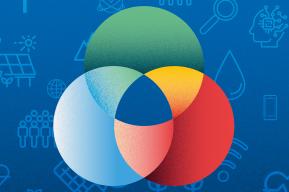Article
How to make the right to science a reality for each and everyone

Access to scientific knowledge and benefits remains inequitable. For instance, only 15.21% of people living in low-income countries were vaccinated with at least one dose compared to 71.93% in high income countries as of 20 April 2022. Gender divides persist e.g., only 35% of STEM students in higher education globally are women. Scientific freedoms continue to be infringed. 332 attacks on higher education staff were recorded in 2021.
In this context, UNESCO, the Swiss Commission for UNESCO, the University of Geneva and OHCHR convened a dialogue on enhancing cooperation to render the right to science more effective, in Geneva, Switzerland, on 25 and 26 April 2022.
It is urgent to make the right to science a reality, and to recognize it as the cornerstone of healthy science ecosystems. Our goal is to have more and better science informing our choices.
The two-day event was the second in a series of multi-stakeholder encounters, involving UN experts, scholars, academics and representatives of UN entities and various institutions from around the world. The aim is to identify strategies to advance the enjoyment of the rights within the mandate of UNESCO.
UNESCO leads the UN efforts to make the right to science a reality for each and everyone.
There are several key issues that need to be considered for the realization of the right to science:
- the insufficient uptake of the right in the promotion of other interconnected rights such as the right to health and to a clean and healthy environment;
- the lack of data and of clear guidance on the implementation of the right;
- the inadequate connection between research funding and national development priorities;
- the need to make better use of margins offered by intellectual property regimes;
- the effects of misinformation and disinformation on trust in science; and,
- the recognition of indigenous and traditional knowledge.
Changing the picture will require among others:
- a paradigm shift to put the right to science at the centre.
- the development of stronger indicators, possibly starting from a few critical areas, to boost data collection and analysis.
- the strengthening of a science-policy interface at different levels.
- the optimization of existing UN mechanisms and mandates to promote monitoring.
- the creation of spaces for broader multistakeholder exchanges, involving UN entities, academia, NGOs, CSOs, NHRIs and private businesses.
UNESCO should continue to be a lead actor and play a central role in these initiatives, particularly by using its convening power.
See also
UNESCO’s 2017 Recommendation on Science and Scientific Researchers is a gamechanger with its comprehensive vision of science anchored in human rights.
A main driver for translating this framework into positive change on the ground is the project sponsored by Swedish International Development Agency (Sida) assisting six African countries to reinforce their science, technology and innovation (STI) policies and systems by integrating the principles of the Recommendation.
Other milestones include the release of a Brief on the right to science and COVID-19, an upcoming study with the American Association for the Advancement of Science on the right to science and SDGs in the COVID-19 context, and the launch of a Massive Open Online Course with the Global Campus of Human Rights.






